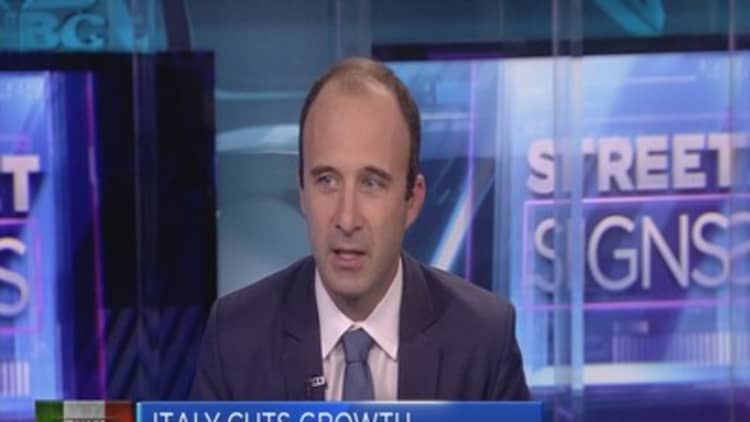The government in Rome has been very outspoken about one upcoming event, calling it a potential turning point for policy in Europe.
Anti-establishment lawmakers in Italy are hopeful that European elections in May of next year will bring a sea change to the European Parliament and allow it to proceed with its controversial spending plans.
"There will be such an earthquake in all countries against the austerity that the rules will change the day after the elections," Luigi di Maio, deputy prime minister and leader of the leftist Five Star Movement, told the newspaper Corriere della Sera on Sunday.
In May, European voters will head to the polls to choose new lawmakers for the European Parliament — the EU institution responsible for approving laws.
Italian populists are confident that the rising support for anti-establishment parties across Europe will deliver a more polarized parliament, making it harder to proceed with any law making. They are also hoping the new Parliament will be more anti-austerity and push for a relaxation of budgetary rules — which would be particularly useful for Rome.
The government in Italy has announced plans to increase public spending in 2019, in a way that the European Commission, the EU's executive arm, has already suggested would be a "significant deviation" from Europe's fiscal rules.
Claudio Borghi, economic spokesman of Lega, one of the ruling parties in Italy, told the BBC recently that Rome "will face the consequences" if the EU does not approve its budget, potentially ending up with a fine for breaking the rules.
However, he added that if such a scenario took place, Italy will be making its case in front of a new parliament.
"I am sure we are going to defend ourselves in a new Parliament. And in the new European Parliament, believe me, the balance of powers will be much, much different compared to what it is now," Borghi said.

The leader of the Lega party and deputy prime minister, Matteo Salvini, met Marine Le Pen, the head of the French far-right party on Monday to prepare their campaigns ahead of May's election.
Salvini described the elections as "the end of the journey, a common sense (of) revolution."
During a joint press conference, Salvini also called the head of the European Commission and the economics commissioner "Europe's enemies."
"The European Parliament elections are going to return an unprecedentedly fragmented result, with the big center-right and center-left families smaller than ever, and new parties — from liberals and greens to left and right radicals — doing better than ever," Constantine Fraser, a European political analyst at TS Lombard, told CNBC via email.
Since 1979, the presence of center-right and center-left lawmakers has slowly declined in the European Parliament. However, they still hold the largest number of seats in the chamber.
Stephen Gallo, European head of foreign exchange strategy at Bank of Montreal, told CNBC last month that "the balance of power has been shifting away from European centrists and federalists towards nationalists, and this process has potentially huge implications for the bloc."
"Political fragmentation that yields financial fragmentation is a serious downside risk to the euro and asset prices," he added.


